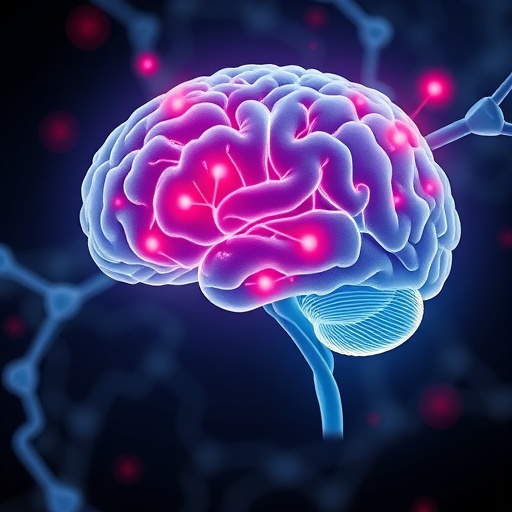Research has emerged linking elevated levels of sex hormone-binding globulin (SHBG) with notable structural brain changes and cognitive decline among individuals experiencing mild cognitive impairment (MCI). This association has significant implications for understanding the neural and hormonal interactions that may contribute to cognitive health in aging populations.
SHBG serves as a protein that binds to sex hormones, notably testosterone and estrogen, modulating their bioavailability and playing a crucial role in endocrine function. Variations in SHBG levels can have profound ramifications on hormone activity in the body, particularly as it relates to cognitive processes. Hence, researchers have begun to scrutinize the connection between elevated SHBG levels and various neurological outcomes.
Recent findings indicate that individuals with increased SHBG concentrations show reduced volumes in specific brain regions, including the temporal lobes. The temporal lobes are vital for various cognitive functions, such as memory formation and processing auditory information. This reduction in volume may reflect underlying neurodegenerative changes, prompting further investigations into how hormonal balances can influence these brain structures.
Mild cognitive impairment, a condition characterized by noticeable cognitive decline that is greater than expected for an individual’s age, often precedes more severe forms of dementia, including Alzheimer’s disease. Understanding the risk factors associated with MCI is critical for early intervention strategies and developing therapeutic avenues aimed at preserving cognitive function.
In this context, the research conducted by Mutee et al. underscores the importance of hormone levels as potentially modifiable risk factors for cognitive decline. The methodology employed in this study was comprehensive, utilizing both neuroimaging techniques to assess brain volume and plasma assays to quantify SHBG levels, thus allowing for a robust analysis of the interrelations observed.
Notably, the implications of elevated SHBG extend beyond structural brain changes. Cognitive tests administered to participants revealed deficits in memory and executive functions, suggesting that not only is brain volume affected, but functional cognitive performance is likewise compromised. These assessments highlight the pressing need to explore how altering SHBG levels might serve as a therapeutic target.
The roles of sex hormones, influenced by SHBG, in maintaining cognitive health have been intricately linked to neuroprotective effects in previous studies. For instance, testosterone has been shown to support synaptic plasticity and encourage the growth of neuronal connections. Consequently, an increase in SHBG could inhibit these protective mechanisms by lowering the available testosterone circulating in the body, thereby accelerating cognitive decline in those with MCI.
Moreover, this research invites further inquiry into the biological mechanisms by which SHBG interacts with sex hormones and brain functionality. Understanding these pathways may shed light on how hormonal therapies or lifestyle modifications can potentially mitigate cognitive decline. Researchers are encouraged to explore whether interventions aimed at regulating SHBG levels could translate into tangible benefits for individuals at risk of MCI.
As the global population continues to age, cognitive health becomes an increasingly prominent public health concern. The findings from this research could prompt an evolution in diagnostic and preventative strategies regarding cognitive impairment. Early identification of elevated SHBG as a risk factor may enable clinicians to better tailor treatment plans and lifestyle recommendations to their patients.
The connection between hormone binding proteins and cognitive function, as highlighted in this study, reflects a broader trend in gerontology research that emphasizes the interconnectedness of endocrine and neurological health. Future research efforts must prioritize multidimensional approaches that consider various biological, psychological, and social factors as they relate to cognitive decline.
In reviewing the current literature, it is evident that while strides have been made in understanding cognitive impairments, the intricate balance of hormones relating to cognition remains underexplored. From large-scale epidemiological studies to targeted clinical trials, there is an opportunity to deepen our understanding and potentially redefine therapeutic protocols for managing MCI.
In summary, the research spearheaded by Mutee et al. not only elucidates the association between elevated SHBG levels and brain atrophy but also emphasizes the urgency with which such findings must be acted upon. There is a responsibility among health professionals and researchers to translate these insights into meaningful action, aiming for early prevention and possible reversal of cognitive deficits associated with aging.
Through collaboration and interdisciplinary approaches, we can further unlock the potential of hormonal research in the realm of cognitive aging. As we advance the understanding of SHBG and its role in cognitive impairment, we pave the way for innovative solutions that promise a brighter, more informed approach to cognitive health.
Subject of Research:
The association between elevated sex hormone-binding globulin levels and cognitive impairment in individuals with mild cognitive impairment.
Article Title:
Elevated plasma sex hormone-binding globulin (SHBG) is associated with reduced temporal lobe volume and cognitive impairment in individuals with mild cognitive impairment.
Article References:
Mutee, A.F., Shareef, A., Kaur, I. et al. Elevated plasma sex hormone-binding globulin (SHBG) is associated with reduced temporal lobe volume and cognitive impairment in individuals with mild cognitive impairment. Eur Geriatr Med (2025). https://doi.org/10.1007/s41999-025-01365-y
Image Credits:
AI Generated
DOI:
25 November 2025
Keywords:
Cognitive Impairment, Sex Hormone-Binding Globulin, Mild Cognitive Impairment, Temporal Lobe, Aging, Neurodegeneration, Hormonal Therapy, Cognitive Health.
Tags: cognitive decline and agingcognitive health in aging populationshormonal balance and brain healthhormone activity and cognitionmild cognitive impairment researchneurodegenerative changes and cognitionrisk factors for dementiasex hormone-binding globulin implicationssex hormones and neurobiologySHBG levels and brain volumestructural brain changes and SHBGtemporal lobe volume reduction





